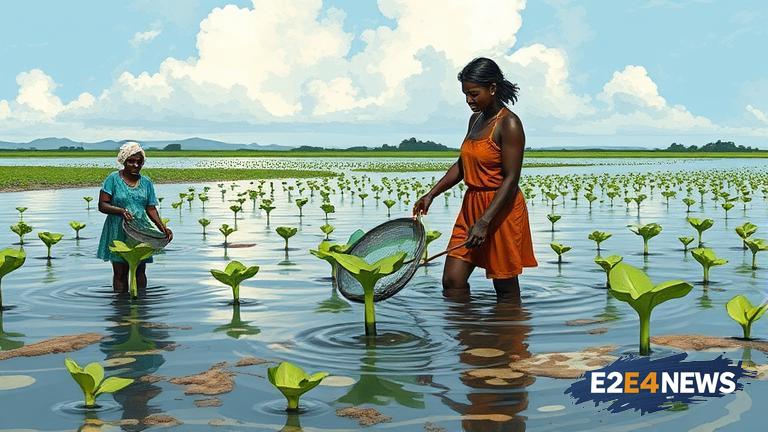In the wake of the catastrophic oil spill that ravaged the coast of Mauritius in 2020, a remarkable phenomenon has emerged. The disaster, which released thousands of tons of oil into the ocean, had a devastating impact on the island’s marine ecosystem and economy. However, from the ashes of this environmental tragedy, a female-led farming revolution has risen. Women from local communities, who were previously marginalized and excluded from the agricultural sector, have come together to form cooperatives and start their own farms. These female farmers, many of whom were affected by the oil spill, have been empowered to take control of their own livelihoods and contribute to the island’s food security. The farming initiatives, which focus on sustainable and organic practices, have not only provided a source of income for the women but also helped to restore the island’s damaged ecosystem. The use of permaculture and agroforestry techniques has allowed the farmers to cultivate a diverse range of crops, including bok choy, leafy greens, and herbs. The produce is then sold at local markets, providing fresh and healthy food to the community. The female-led farming revolution has also had a profound impact on the social and economic fabric of the island. Women who were previously dependent on their husbands or families for financial support are now earning their own income and gaining independence. The cooperatives have also provided a platform for women to share knowledge, skills, and resources, fostering a sense of community and solidarity. Furthermore, the farming initiatives have helped to promote environmental awareness and education, highlighting the importance of sustainable practices and conservation. The Mauritian government has also taken notice of the female-led farming revolution, providing support and resources to help the initiatives grow and thrive. The Ministry of Agriculture has launched programs to provide training and capacity-building for female farmers, as well as access to markets and financing. International organizations, such as the United Nations, have also partnered with the government to provide technical assistance and funding. The impact of the female-led farming revolution extends beyond the island of Mauritius, serving as a model for other countries and communities affected by environmental disasters. The initiative demonstrates the potential for women to play a leading role in sustainable development and environmental conservation. As the world grapples with the challenges of climate change, food security, and social inequality, the story of the female-led farming revolution in Mauritius offers a beacon of hope and inspiration. The revolution has shown that even in the face of adversity, women can come together to create positive change and build a more sustainable and equitable future. With the support of governments, international organizations, and local communities, the female-led farming revolution in Mauritius is poised to continue growing and thriving, providing a model for sustainable development and environmental conservation around the world. The initiative has also highlighted the importance of empowering women and promoting gender equality in the agricultural sector. By providing women with the skills, resources, and support they need to succeed, the farming revolution has helped to break down social and economic barriers, promoting a more inclusive and equitable society. As the female-led farming revolution continues to evolve and grow, it is likely to have a lasting impact on the island of Mauritius and beyond, serving as a testament to the power of women’s leadership and collective action.
